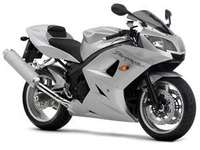No one wants to see the price of gasoline climb to $5 a gallon, but one Chicago startup could get a lift from more people trading in cars for electric scooters or motorcycles.
AllCell Technologies LLC, a small firm that patented technology to prevent ion-lithium batteries from overheating and catching on fire, has been creating jobs and ramping up production over the last year in its recently expanded assembly plant in the city’s Back of the Yards neighborhood.
Said Al-Hallaj, a co-founder and CEO, developed a material solution that evenly distributes heat produced by ion-lithium batteries.
The Jordanian-born Mr. Al-Hallaj designed this product while working on his doctorate at the Illinois Institute of Technology in the 1990s on safety and thermal management solutions for this specific type of battery. He co-founded AllCell with his IIT adviser after he was awarded patents for his technology in 2001 and licensed it back from the school.
Last year, they began selling their material solution to companies that make battery packs for electric bikes and scooters. AllCell also signed a deal to work on battery packs with two Purdue University engineering students who are developing an electric motorcycle. That battery-powered bike is expected to reach a maximum speed of 120 mph and a range of 120 miles before it needs recharging.
In the last year, AllCell doubled its assembly plant workforce to 22 as part of a $1 million expansion project and training program. The firm received a $460,000 grant in 2011 from the Illinois Department of Commerce and Economic Opportunity that was part of the federal stimulus plan. AllCell is also buying cells from others and manufacturing its own battery packs, which are being sold in the U.S. and in Europe and Asia. Last year sales totaled less than $1 million and the company isn’t profitable yet.
Crain’s met with Mr. Al-Hallaj recently to learn more about AllCell.
Crain’s: Why is heat management such a critical component to developing an ion-lithium battery as a good alternative energy source?
Mr. Al-Hallaj: Sony started making ion-lithium batteries in the early 1990s for their electronics because they were lighter, smaller, and they were supposed to last longer and be environmentally friendly. When you put a few of those batteries together, for example in a laptop, they start to heat up when you use them.
If you don’t control the temperature when the batteries heat up, you lose lifetime on the battery. If you use them in another application, say in an electric car, the battery needs to last five to ten years. So controlling thermal management is a means to extend the life of the battery, but if you don’t control the heat, the cells can catch on fire and you can have an explosion.
Crain’s: So how does your technology actually work?
Mr. Al-Hallaj: We use a passive thermal management solution with a graphite matrix soaked with wax that’s surrounding each cell in the battery pack. That graphite matrix moves the heat around to make the battery temperature uniform. Even if one cell fails, the material will spread the heat quickly and quench it to prevent the heat from moving to other cells (within the battery) and catching on fire.
Crain’s: I hear the U.S. military also purchases batteries containing your product. Can you describe how soldiers are using them?
Mr. Al-Hallaj: We worked with another company to develop battery packs for military personnel that carry portable electronic equipment in the field. Soldiers are now carrying lots of electronics with them — night goggles, GPS, laptops, even cameras for drones. In a lot of cases, their mission time is limited by how much power they have to continue their work, so it’s critical they have batteries with a long life.
Crain’s: What are your plans for growing your business in the near term?
Mr. Al-Hallaj: We’re the only company in the U.S. that makes this product for the e-bike and e-scooter market. We’re hoping the U.S. market will grow and that we become the prominent assembly plant here. The U.S. market is still small, but we just hired sales people who are out there in the U.S. and Europe to promote us. We’re also becoming popular in Asia because it’s so hot there it doesn’t take much for these batteries to heat up.
We’re hoping to grow the business in the U.S. because our biggest competitive advantage is that we’re here, we’re local, and there’s no one in the U.S. making the cooling technology we’re making.
Crain’s: What will it take to really put your company on the map?
Mr. Al-Hallaj: The private sector is still reluctant to invest in this technology. If we could be part of a public demonstration project in a smart grid initiative in the U.S. in a state or federal program, it would make a big difference. If those programs test our product, they’ll publish the data and it would come from a credible third party. That would give strong validation to the technical and economic feasibility of our product and that would make a big push for more in the private sector to invest in our technology. Nobody wants to be the first.
Crain’s: What’s your recipe for nudging the U.S. market to embrace products that run on non-fossil fuel energy sources?
Mr. Al-Hallaj: There’s no silver bullet. The government has a role to push for some funding for continued research in renewable energy sources. But the best thing the government and private sectors can do is level the playing field. Traditional energy companies have a lot of money to spend and we can’t counteract the message of those big oil and coal players on our own. Consumers at the end of the day will decide what they want to buy, but we have to continue to innovate and push and not expect to get rich overnight.




